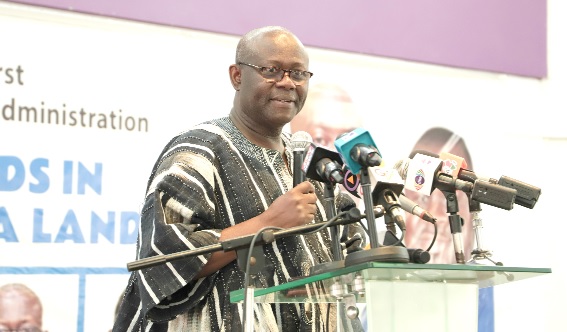
Let’s protect our legacy as media practitioners — GBC Director-General
Media practitioners have been advised to see their profession as a form of legacy business which needs to be protected for the future.
The current trend where social media is taking over traditional media should be a source of concern to media professionals, for which reason they must move away from the old ways and adopt digital innovations as a means of protecting its space.
The Director-General of the Ghana Broadcasting Corporation (GBC), Professor Amin Alhassan, gave the advice at a forum of the Ghana Journalists Association (GJA) to mark the first anniversary of the current GJA administration in Accra yesterday.
He said the traditional media, also known as legacy media, was losing a significant percentage of its economy to social media, a situation that could have dire consequences for the media profession, if care was not taken.
The forum, held at the International Press Centre, attracted a host of practitioners and other stakeholders.
Threat
Speaking on the topic: “New Media vrs Traditional Media: Issues of Ethics and Professionalism,” Prof. Alhassan said legacy media was being given a raw deal through the invasion of the social media platforms which capitalised on information from the traditional media to their advantage.
Apart from the revenue being lost to the social media, the GBC DG noted that the old medium of media channels was giving way to new technoscapes of media platforms and that the changes were transforming journalism practice and functions raising several ethical issues.
It was, therefore, important that legacy media as an institution of democracy should be protected to continue to uphold the ethics and professionalism in the face of the growing power of new technologies.
“In the new media ecosystem, the broadcast entity still carries the burden of cost of content production, transmission, labour, utilities and taxes. But guess who makes the real money?
It is the tech giants who own the platforms,” he indicated.
Prof. Alhassan, who indicated that this had become a global phenomenon, cited a situation where in Canada, it was discovered that 80 per cent of digital advertisement expenditure went to social media.
Global trend
To reverse the trend, the Canadian Parliament in June 2023 passed the “Online News Act” Bill C 18, making it possible for news media outlets whose content are accessed through social media platforms are able to negotiate some payments from the platform owners.
This stance, he noted, was justified because “journalism is not just a business of publishing and making money.
It is an institution of democracy that must be protected.”
Values and ethics
The new media ecosystem, he further explained, “has brought about the phenomenon of weaponisation of information.
Also fake news now has higher virality than truthful news and it even becomes turbo charged if the content is meant to damage the reputation of a target.”
These, he said, were the developments that made nonsense of the professional values and ethics of journalism.
“As they gain control of news content circulation because of their ownership of platforms, tech giants are literally replacing the human editor with algorithms.
This is a serious ethical and professional development that should not be allowed to go on unchecked”.
The traditional media, the GBC Director General stressed, must work hard not to lose its space as it was the sure means to help further develop democracy.
Criminal Offence, safety
A law lecturer of University of Professional Studies, Accra (UPSA) Law School, Albert Quashigah, said though the Criminal libel law had been repealed to give freedom to the practice of journalism, there were some other laws such as section 208 of the Criminal Offence Act of 1960 which posed similar challenges to the work of media practitioners and, therefore, called for it to be repealed.
He said section 208 as it stood now, criminalised the publication of false news which led to the arrest of journalist and that was a threat to the work of journalists.
The Deputy Minister of Information, Fatimatu Abubakar, who touched on the safety of journalists as a major issue, said the safety of journalists was a collective responsibility which Ghanaians should be educated on.
“So if we don’t sensitise the general public and look at the safety of journalists as more or less a political problem, we won’t get anywhere to solve that”.
The President of GJA, Albert Kwabena Dwumfour, mentioned some of the achievements of the current national executive as the refurbishing of the Ghana International Press Centre, the Journalist Support Fund meant to address issues confronting the welfare of journalists in the country and the bid to host the 3rd Africa Media Convention in May 2024 as a major milestone of the association.
Mr Dwumfour said the association was working hard to increase the membership of journalists in the country, as well as exploring more professional training opportunities for its members.
